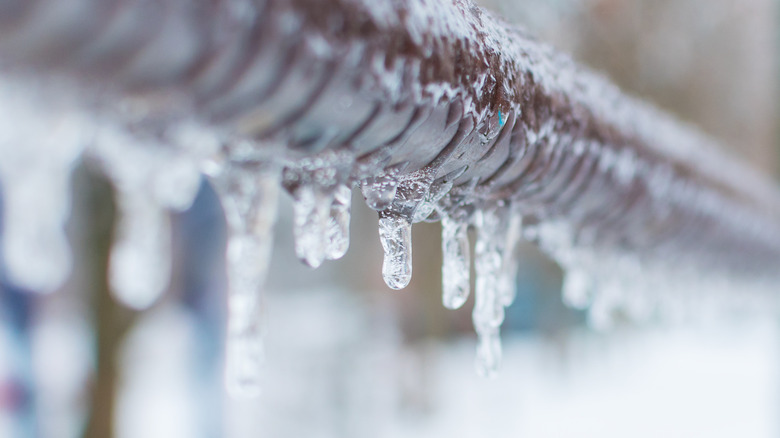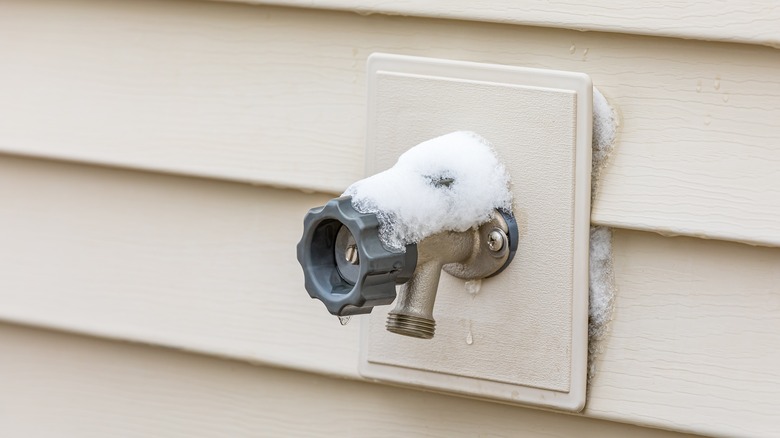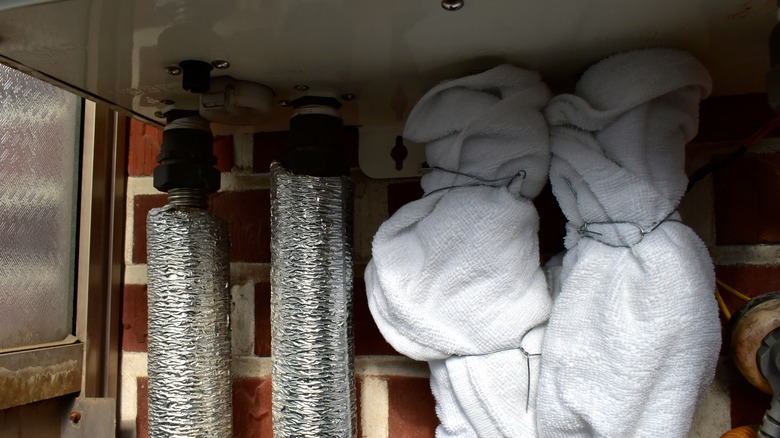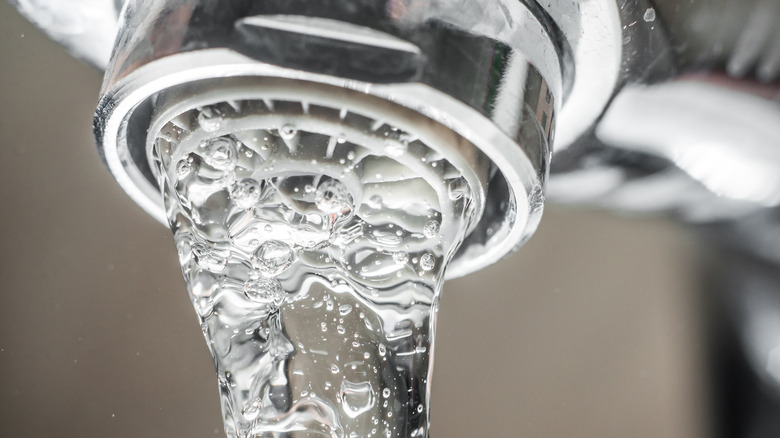How To Prevent Your Pipes From Freezing, According To An Expert
Cold weather often brings a gentle coating of snow and a variety of seasonal outdoor activities that are beloved by many. However, in some of the coldest regions of the world (including cities in the U.S. and Canada), many homeowners face the winter season with dread because with a winter wonderland comes the potential for frozen plumbing and immense property damage. A frozen pipe can become a safety hazard in an instant, and if it bursts as a result of expanding water volume (as it continues to freeze), it can cost you a pretty penny to fix. In fact, a frozen pipe is likely to cost a homeowner hundreds of dollars, but this can rise to thousands in damages if it explodes as a result of winter conditions.
For most, the best course of action lies in prevention, allowing everyone in the home to count on a consistent water flow while mitigating the potential for damage and high repair costs. In an exclusive interview with House Digest, Jake Romano, Manager of John the Plumber, offers a few critical tips on battling the elements when seasons change and the cold arrives.
Close your outdoor faucet properly
Starting with the physical infrastructure of your home's water systems is a great way to protect your pipes. "This is a biggie," Romano says. "The water pipes supplying to outdoor faucets most commonly freeze."
Preventative care can be the best approach, and if done right, it will help you avoid all future issues that may stem from an initial freeze. "First, get a frost-free hose bib. These spigots are designed to automatically drain any water that would be otherwise exposed to freezing temperatures. This prevents the freeze from spreading because it never starts," Romano explains.
Of course, leaving water to sit in vulnerable areas is akin to asking for disaster to strike. Thankfully, Romano provides an easy fix. "Second, before starting the winterization process, drain the water supply to the outdoor faucet. To do this, turn off the water supply and open the outdoor faucet fully to allow the water to flow out of the pipes. If there is a hose attached to the outdoor faucet, remove it. Then, wait until the water has stopped flowing from the outdoor faucet. This means that the pipes are now empty. Finally, close the outdoor faucet to prevent air from entering the pipes," Romano advises.
Don't let your pipes be exposed to freezing temperatures
Another core principle in fighting the freeze might seem obvious, but there are many ways to approach the task. Thankfully, basic steps to prep your home for cold weather will also benefit your plumbing. "If you have pipes in your basement, garage, attic, or even on an exterior wall, you may have problems," Romano notes. These spaces are notorious for exposure to extreme cold. To defend your pipes from a cold snap or prolonged frost, "you'll want to ensure that you have sealed any leaks, especially in unheated spaces. Caulking, foam sealing, and weather-stripping are great for preventing cold air from entering your home," Romano says.
"Keep the heat up in your home," Romano adds. "Open doors and use fans to move heat around, and open cabinet doors when it's freezing because cabinets can keep the heat away from the pipes. Insulate the pipes to keep them warm. You can use foam insulation, electrical heating tape, or other similar products — or a combination." A varied approach to capturing even the slimmest amount of heat can make all the difference in preventing damage to these key features.
Keep the water running when it's freezing and add heat if necessary
Lastly, a little help from fluid dynamics and physical science can push your efforts to the next level. "Water flow prevents water from freezing," Romano notes. "Even a small stream can prevent the pipes from freezing. It can also reduce the pressure inside the pipes if a freeze does happen, which can prevent bursting." This simple practice can be the difference between hundreds or thousands of dollars worth of damage, even if it adds to your water bill.
The direct application of heat will translate into greater system stability during times of increased stress from environmental factors that remain outside of your control. So during an emergency, it may be a good idea to get creative with your efforts. "If all else fails, add heat," Romano says. "Space heaters are a great option, but in a pinch, you can wrap a heated blanket around pipes to get some heat in there to prevent bursting. Hair dryers work too; they're just not ideal. And, be careful to prevent fires."



